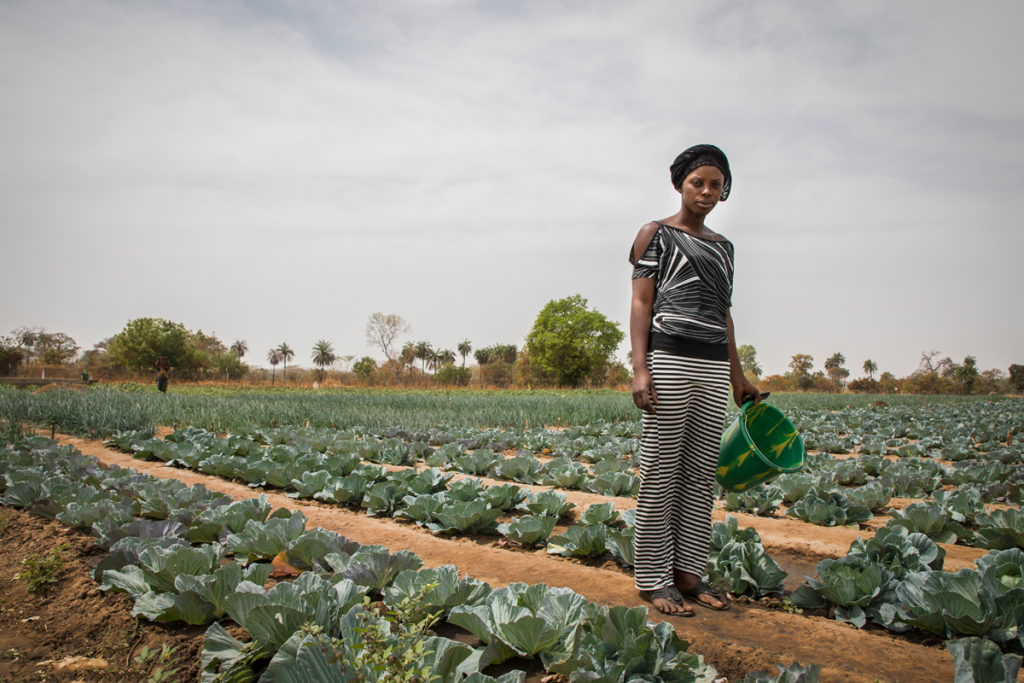Small Scale Agroecological Approaches for the COVID-19 Response and Beyond

From the closure of markets to the interruption of agricultural supply chains, the COVID-19 pandemic threatens to disrupt food systems around the world. Many families, especially those in already fragile contexts, may soon struggle to access healthy, nutritious diets. Meeting the needs of these families – where they are and when they need it – is of critical importance. Alongside food aid, cash transfers and other emergency assistance, the role of household gardens as a frontline food security intervention and longer-term resilience strategy must not be overlooked.
This webinar is promoted by the Strengthening Capacity in Agriculture, Livelihoods, and Environment (SCALE) program, an initiative funded by USAID’s Office of Food for Peace (FFP) and implemented by Mercy Corps in collaboration with Save the Children.
Join SCALE and a team of practitioners from Danish Refugee Council, African Women Rising, the International Rescue Committee and Helen Keller International for an interactive discussion on the contributions of household gardens to food security and nutrition. Drawing on experiences from Uganda to Vietnam and across our global FFP community, the panel will explore what makes a garden resilient and key approaches for establishing them in fragile contexts.
In breakout sessions, the panellists will dive deeper into how the COVID-19 crisis is impacting gardening activities and discuss practical solutions to urgent challenges, including disruptions to agricultural markets, inputs and technical assistance. Throughout the call and breakout groups, they will crowdsource strategies and resources to overcome these hurdles and will begin drafting guidance for supporting household gardens throughout the current pandemic and beyond.
COVER PHOTO:
©IFAD/Barbara Gravelli
Thomas Cole
Resilience Design Consultant, Co-founder of African Women Rising and former Africa Region Food Security and Agriculture Advisor for Save the Children
Tom has worked over 25 years in sustainable agriculture with a focus on post-conflict recovery, organic horticulture, agricultural extension, permaculture, natural resource management and food security. His recent experience has included support to internally displaced populations in Ethiopia, Democratic Republic of Congo and South Sudan and in refugee camps in eastern Chad and Northern Uganda, as well as support to Food for Peace-funded programs in partnership with the SCALE Award.
Natalie Topa
Regional Resilience and Livelihoods Coordinator for East Africa and Great Lakes Region (EAGL) at Danish Refugee Council
Natalie has dedicated her career to supporting efforts to heal and restore community agroecosystems as a basis of circular bioeconomy at the bioregional level. Her experiences over the past 15 years – including serving as IRD’s South Sudan country director and now Danish Refugee Council’s Regional Resilience and Livelihoods Coordinator – have shaped her approach to livelihoods and community wellbeing and deepened her resolve to tackle the root causes of ecological degradation. Natalie believes that building systems-based resilience for households, communities and regions can happen by applying design and regenerative thinking to all contexts, including the natural, built, social and economic environments in which we work.
Tara Clerkin
Senior Coordinator for Agriculture, Climate, and Partnerships for the International Rescue Committee’s Economic Recovery and Development (ERD) team
Tara is responsible for advancing ERD’s programming focused on climate resilience, food and nutrition security, and livestock—including partnership development and advocacy. In her previous role as Rural Livelihoods Officer with ERD, Tara provided technical support for monitoring and evaluation, value chain and market assessments, and agriculture and livestock program design to countries including: NE Syria, Myanmar, Somalia, Liberia, Sierra Leone, and Niger. Before joining the IRC in October of 2016, she was the Manager of Program Impact with the Clinton Development Initiative (CDI), an initiative of the Clinton Foundation operating an inclusive, farmer-first agribusiness model. In her role with CDI, Tara focused on monitoring and evaluation, strategy development, and partnership development. She holds a B.B.A. in finance with minors in Peace Studies and Irish Studies from the University of Notre Dame and a dual master’s degree in Economics and International Political Economy and Development from Fordham University.
Meredith Jackson-deGraffenried
Senior Technical Specialist in the Asia-Pacific Regional Office for Helen Keller International
Dr. Jackson-deGraffenried supports country offices primarily in nutrition and food security programming. She holds a PhD in biocultural medical anthropology with a focus on maternal and child health and nutrition. Her work with Helen Keller emphasizes reducing social disparities in health and food security outcomes, increasing access to essential services, improving resilient livelihoods, and accounting for psychosocial factors that influence decision-making. Prior to working for the regional office, she was Technical Advisor then Country Director for Bangladesh. These days, Dr. Jackson-deGraffenried lives in Zambia while supporting Asia-Pacific, heading out into the bush whenever possible for a bit of camping and safari.
Warren Brush
Resilience Design Consultant, Co-Founder Quail Springs Permaculture
Warren Brush is a global resilience design consultant, educator, lecturer and storyteller. He has worked for over 30 years in agroecological education and regenerative system design for communities, private and public organizations, households, farms, and conservation properties worldwide. He is co-founder of Quail Springs Permaculture, Wilderness Youth Project, Practical Resilience Consulting and is an advising founder of the Permaculture Research Institute of Kenya. He was also a member of the USAID’s TOPS team where he helped to develop the Resilience Design Framework and currently working as a consultant for the USAID FFP funded SCALE award.
Kristin Lambert
Agriculture Advisor, Mercy Corps
Kristin Lambert leads SCALE’s efforts to enhance research, learning and collaboration across FFP’s global portfolio, with a focus on agriculture and natural resource management (NRM). An Agriculture Advisor on Mercy Corps’ Technical Support Unit, Kristin has a decade of experience working in technical, management and research positions across sub-Saharan Africa. Her work has focused on climate information services, resilience programming, climate change adaptation and community-based conservation. Kristin holds a Master’s in Environmental Management from the Yale School of Forestry & Environmental Studies and a MPP from the University of Virginia.